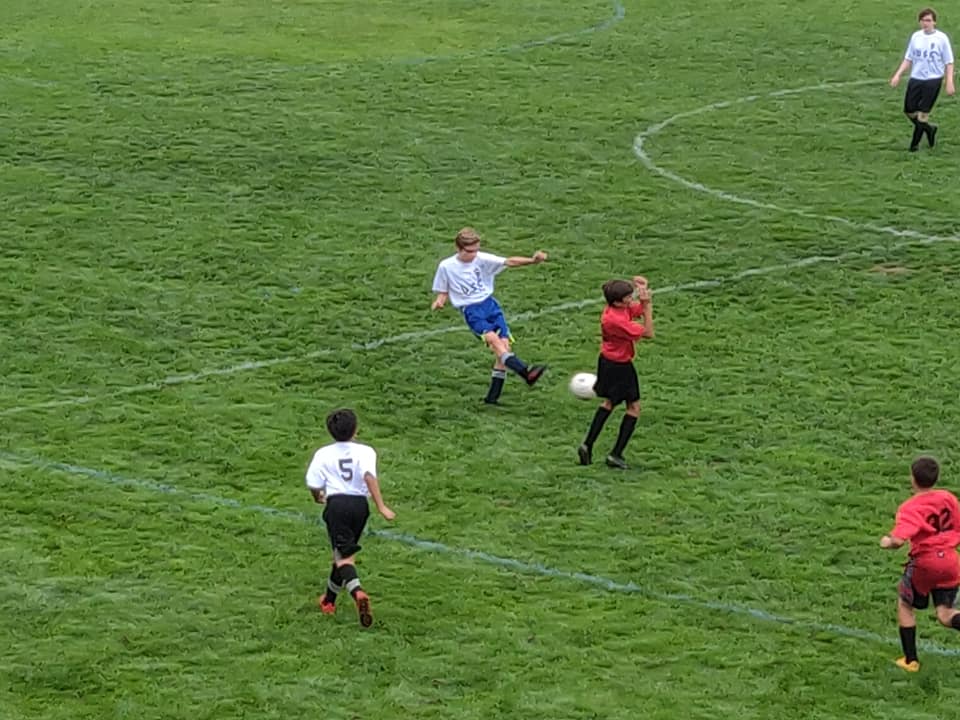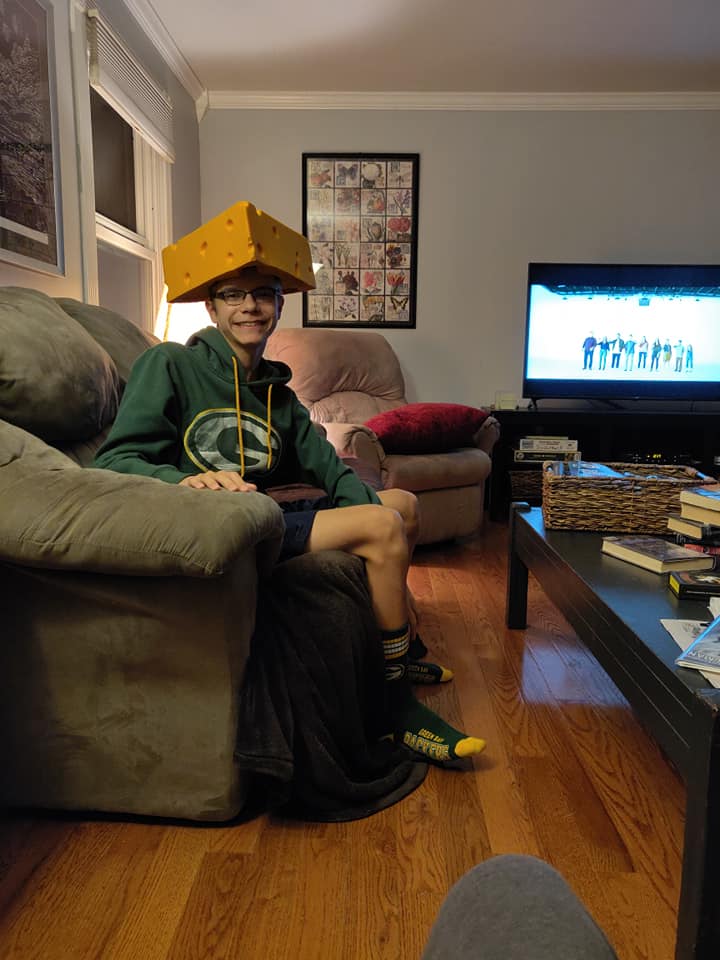Note to the masses: if you visit Mark, do not leave with him. He will likely tell you that he can, but that is not true. This note is necessary for one good reason: Mark escaped. He’s been hankering to get out, as you can imagine, and even tried using the magic acronym “AMA” to set him free, but the social worker has been helping me keep him put. He’s still recovering from a very significant surgery, and he still has a lot going on medically other than that. He isn’t making a lot of sense these days. He told me about a wonderful lunch he had in the dining hall with a new resident. “I told her about the library and the swimming pools and picnics we have here!” he enthusiastically recalled.
Mark gets daily speech, PT and OT. His next round of chemo is Sept 11, 12, and 13. One major struggle is that while the facility will transport him, he can’t navigate the hospital alone. He can’t find his way to a doctor’s office or recall why he’s there. I’m back to school, and I am balancing working with arranging for someone to be with Mark at every appointment. And there are a lot of appointments. In addition to chemo, in the “neuro” alone prefix, he’s got neurosurgery, neurology, and neuropsychology appointments. He has opthalmology and ENT to follow up with. He needs to meet with the radiation oncologist. They told me he should really check in with his PCP, too. He’s getting a little sick of all of it.
We knew Mark was a flight risk. That’s why he was given an ankle monitor when he arrived at skilled nursing. The ankle monitor is designed to set off an alarm if Mark passes the threshold of the front door.
All went fine, until the woman who’s ALWAYS at the front desk in on the daylight shift went on vacation. Mark looks more like a regular visitor than a typical resident there. He’s tall enough that you can’t easily see his surgical scar on the top of his head. The average age in skilled nursing appears to be about 80, so at 56 he doesn’t remotely fit the profile of a skilled living resident. He wears regular street clothes, and he isn’t using an ambulatory assistance device, relying on the walls when he needs to steady himself. So one day when Mark followed a group of visitors out the front door after figuring out how to remove his ankle monitor, the woman at the front desk didn’t even look up.
I was at work when I got a call from his friend, who had gone to visit Mark that day. “Um, I’ve got Mark at the house. Should I stay with him?” “YOU WHAT?” I yelled into the phone. The friend sounded nervous, “I found him at the end of the parking lot when I showed up to visit, and he said he was waiting for a ride home. I brought him home.” “HE HAD BRAIN SURGERY! HE CAN’T COME HOME!” I said, adding a few choice curse words. “TAKE HIM BACK!” “Um, okay,” I could practically hear the sweat begin to cover his brow. “Okay, let me try to get him back in the car.” I hung up and called the facility. “MY HUSBAND ESCAPED. SOMEONE LET HIM OUT!” I yelled at the front desk lady. She put me through to the supervisor, who anxiously told me the friend should bring Mark back. Um, yeah. I gave him the friend’s phone number and he said he’d call as soon as they got back. I waited. And waited. Thirty minutes later, the call came that he had been returned, safe and sound.
I had installed a Nest security camera on the house, and I looked at the footage later. I watched Mark’s awkward gate as he approached the front door, the black surgical stitches still arcing across his skull. I watched as two minutes later he left the house and got back into the car with his friend.
I drove the facility to meet with the supervisor. I learned that skilled nursing really doesn’t want to lose your loved one, because they have to report these things to the state. It creates a lot of paperwork and dings their permanent record. Which I was glad to hear. I also learned that they can’t restrain or drug your loved one to keep them in. It creates more of a prison-like situation. Not allowed. The ankle monitor Mark had was the most secure device that was permitted. Short of the dementia unit, they couldn’t lock Mark in.
I toured the dementia unit with the supervisor. If you’ve never toured a dementia unit, you might be — as I was — picturing grandma and grandpa saying silly things and shuffling around. What it looked like was a dismal locked ward with a swarm of wheelchairs loitering around the nurse’s station, some people yelling, many sleeping, and others looking confused or agitated. The smell was strong. The atmosphere was of impending doom. This would not work.
To try harder to keep Mark in, the supervisor put up a “Wanted” style poster at the front desk. A black and white mug shot of Mark looking ancient and exhausted was taped a magic marker headline stating “ELOPEMENT RISK.” The posted a 24/7 sitter in his room.
Later, I asked Mark if he remembered escaping. “Oh yes,” he said calmly. “Why did you do that?” I asked. “I wanted to go home and have a beer,” he said.
That seemed pretty logical to me.

